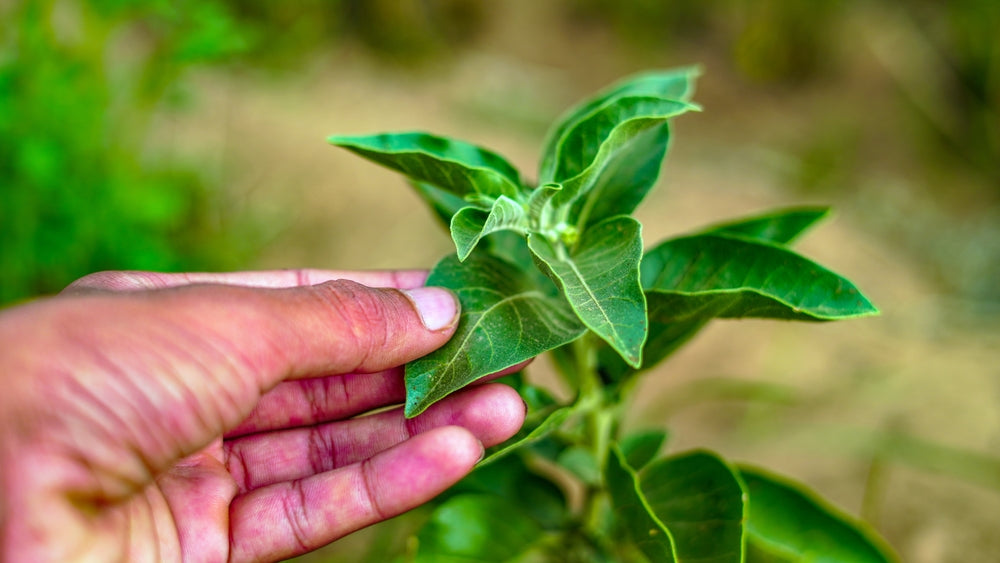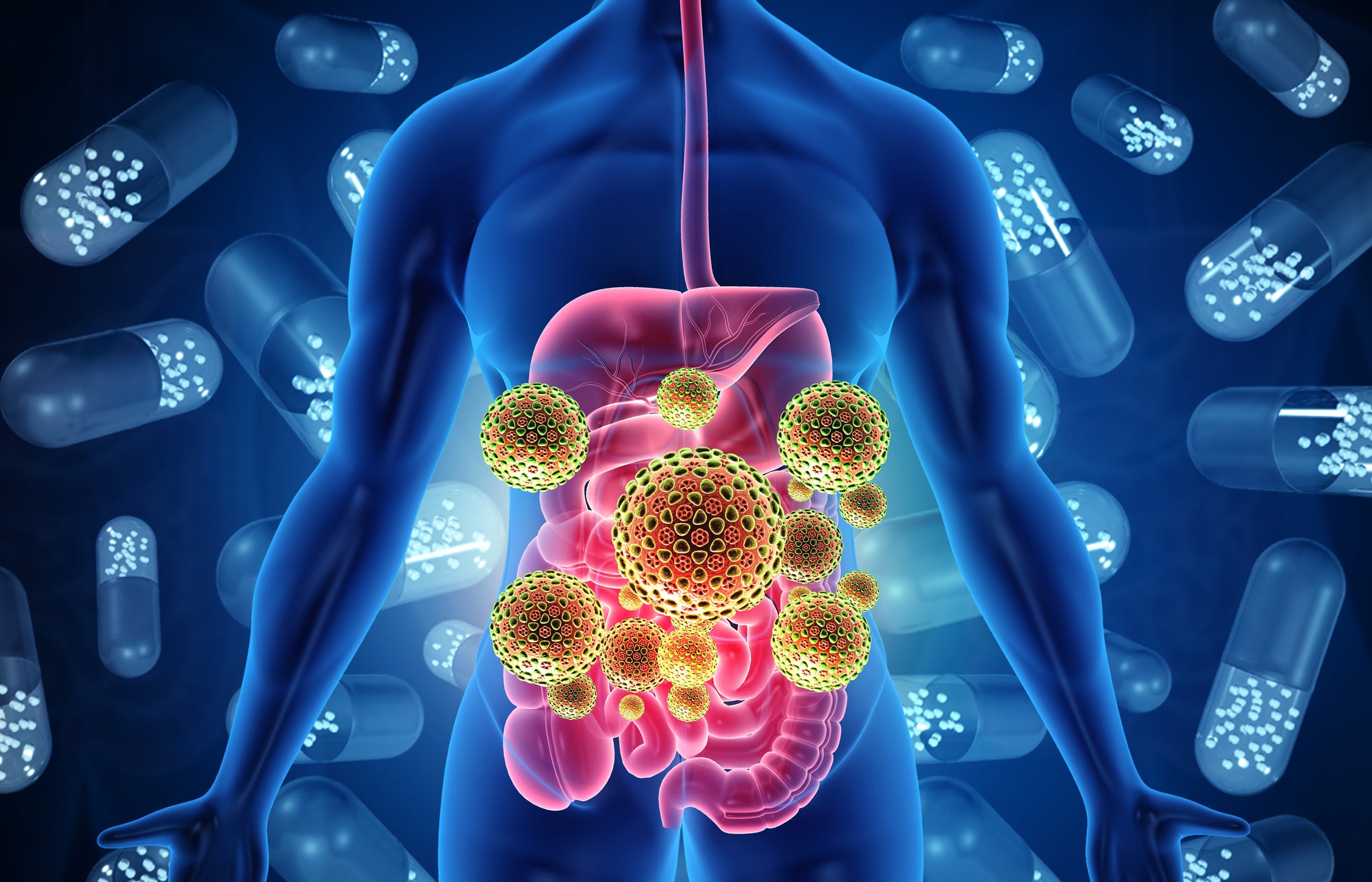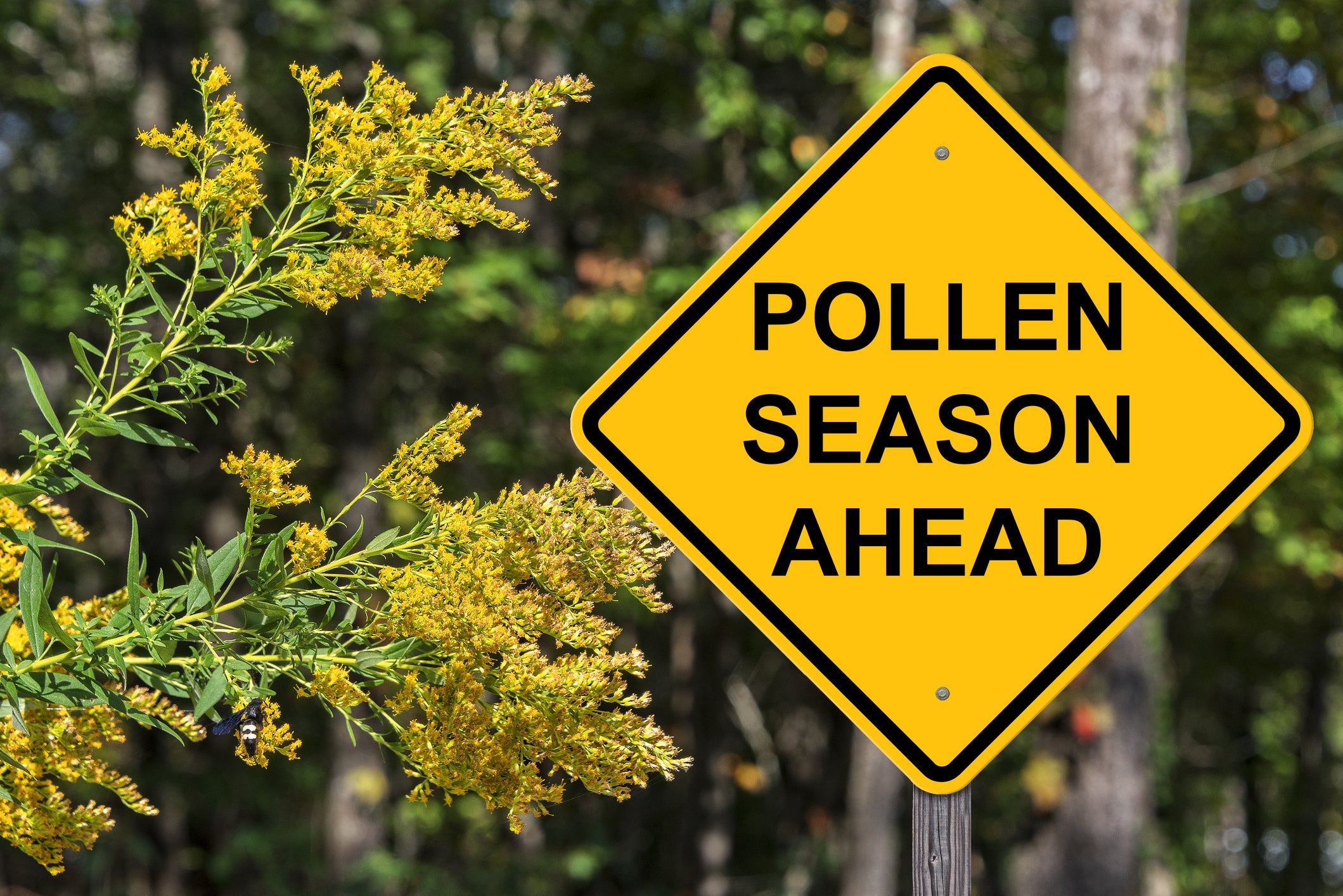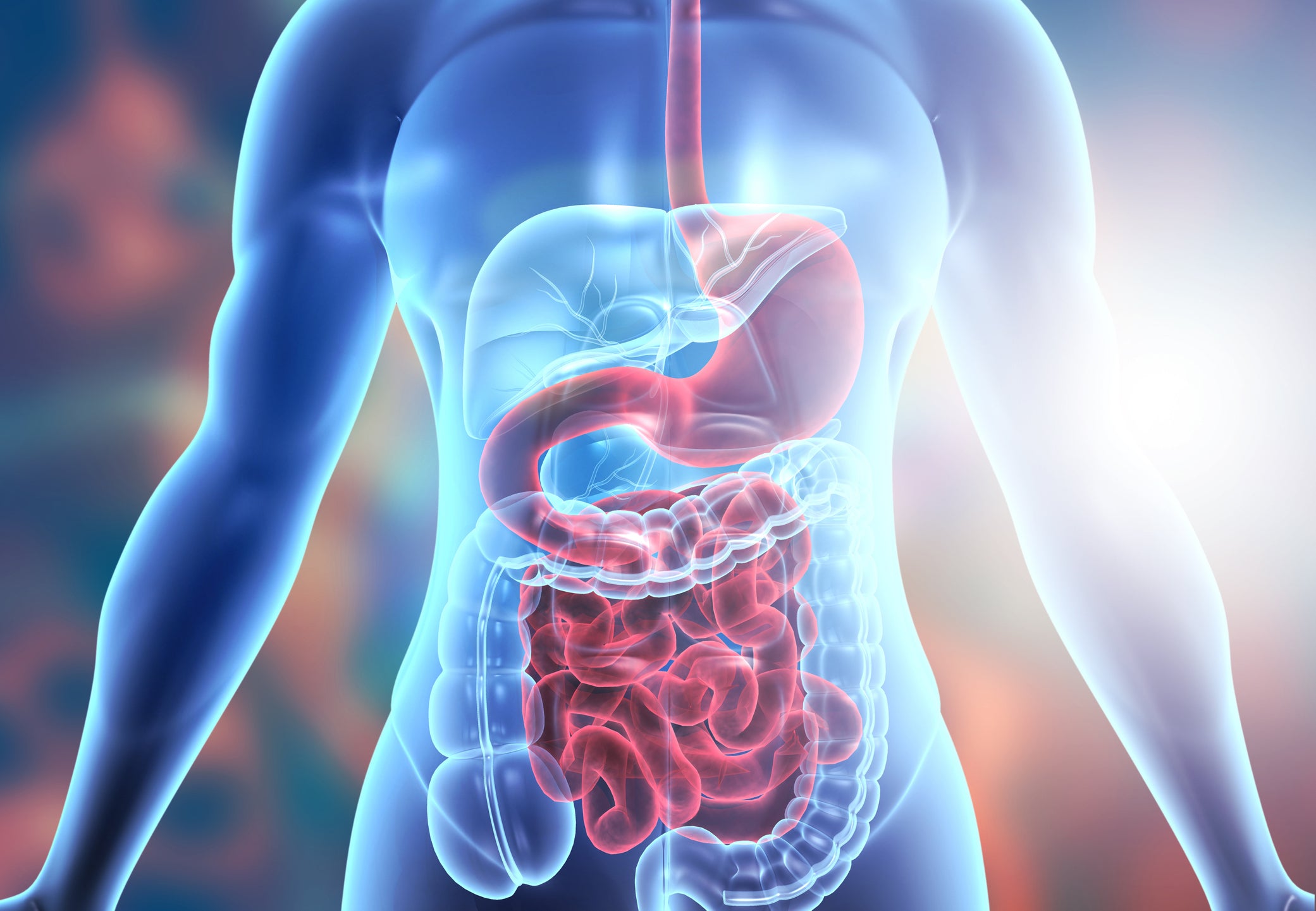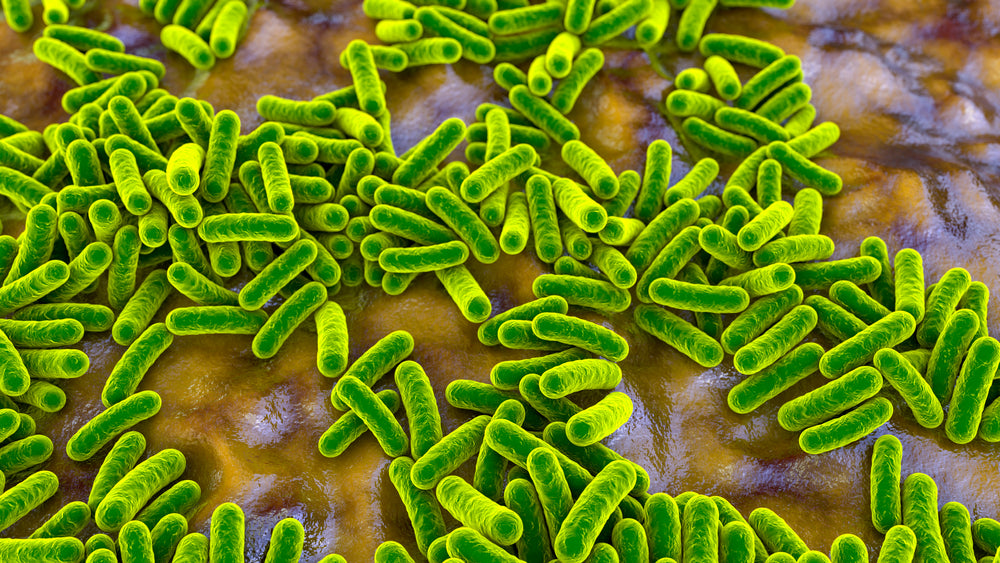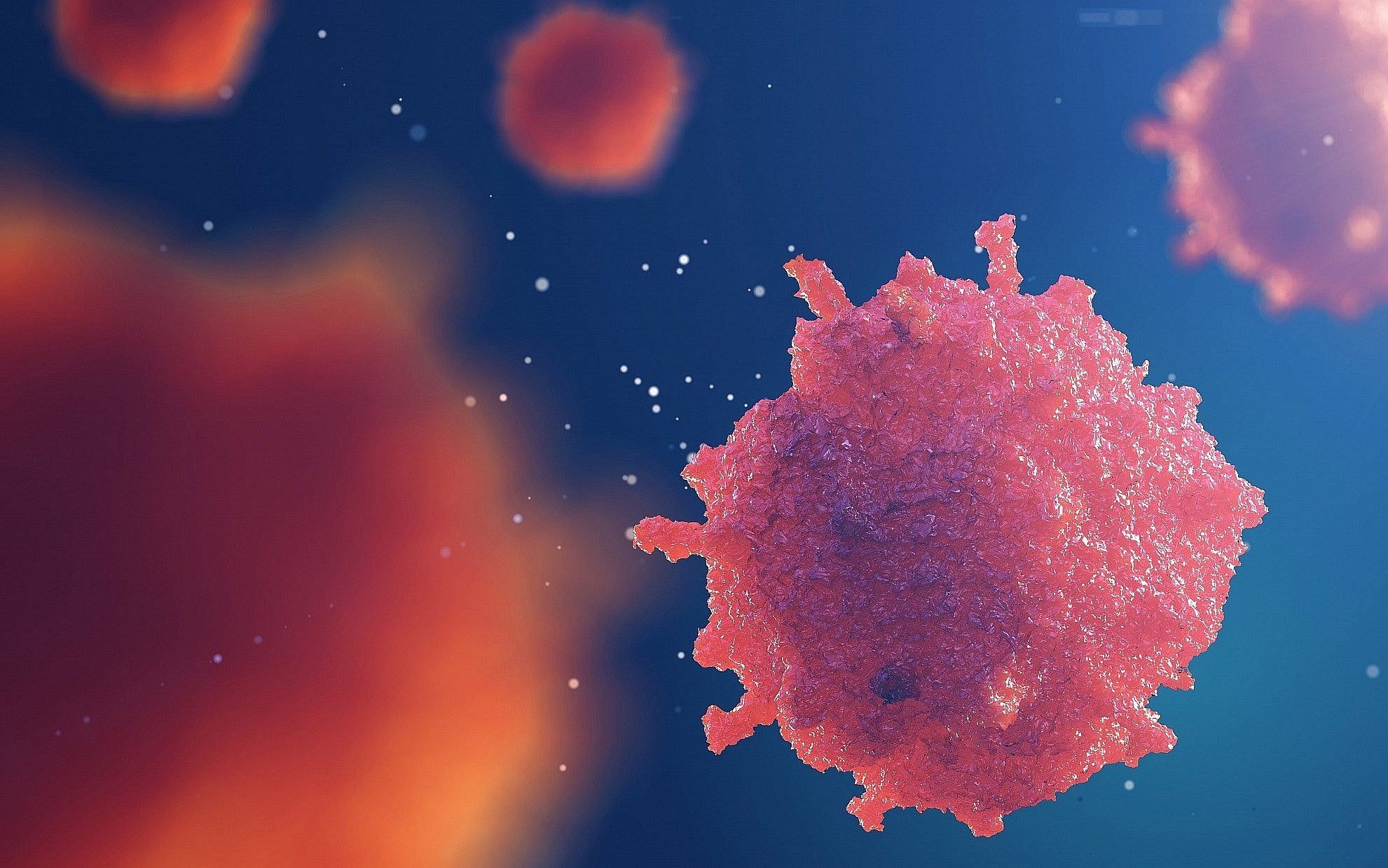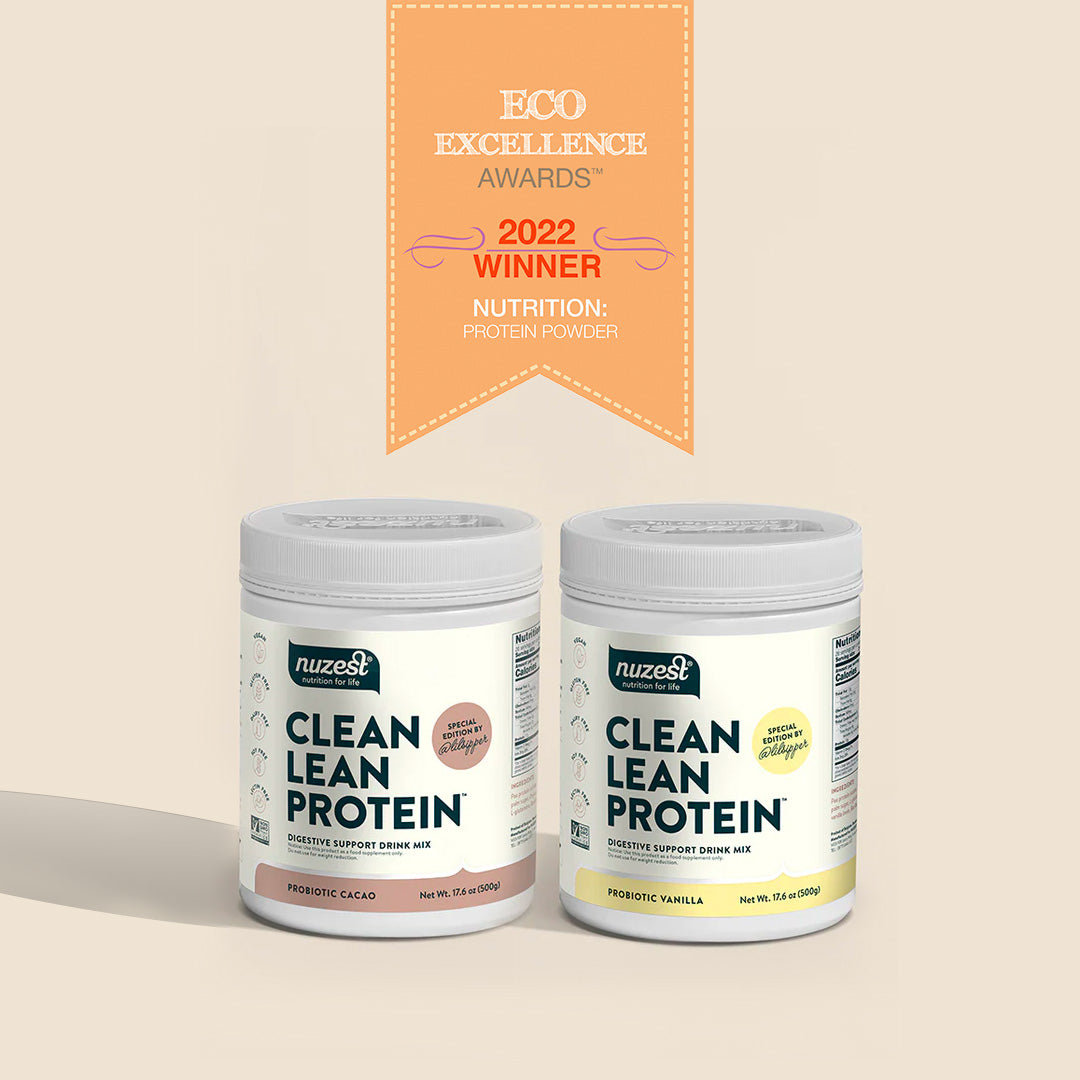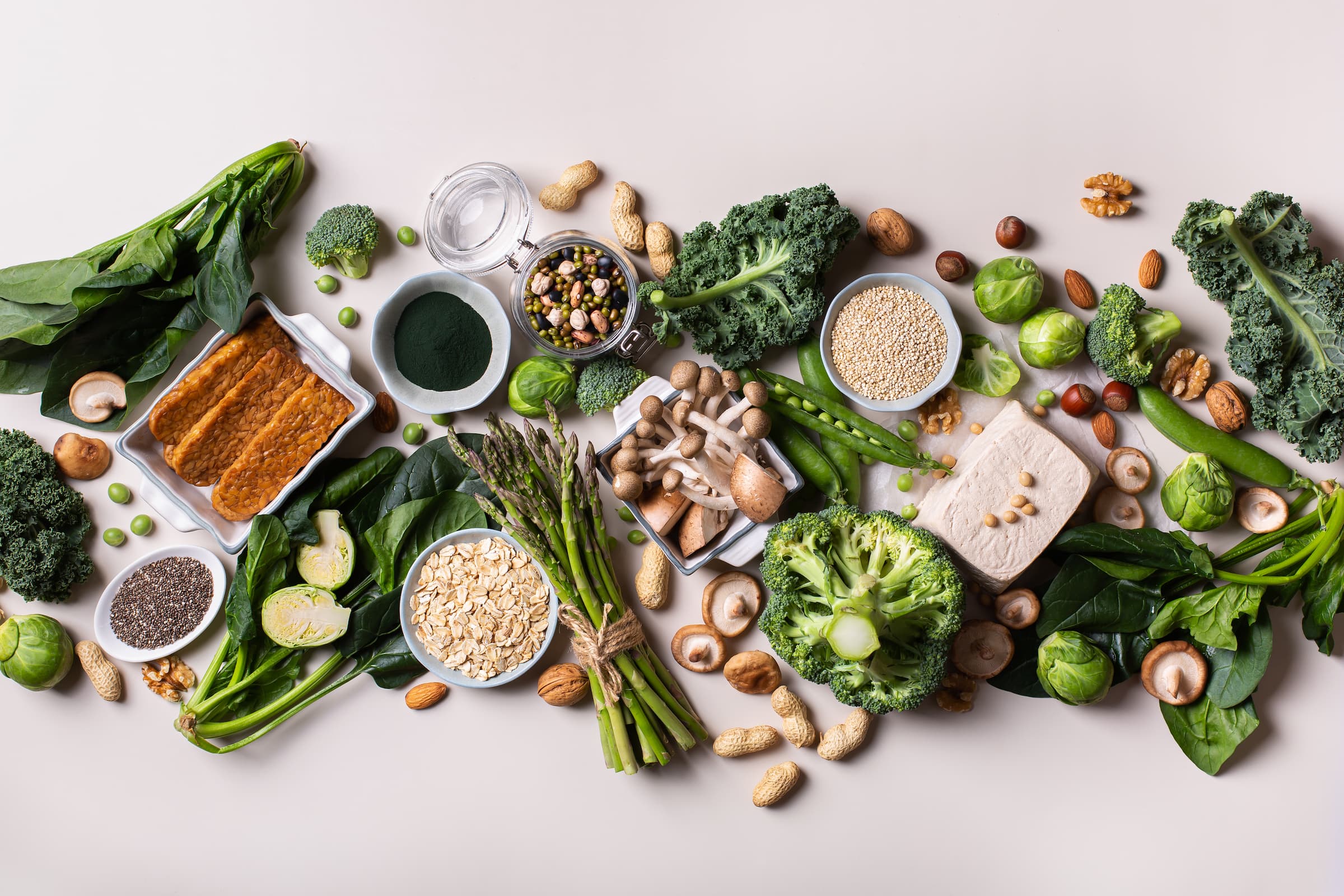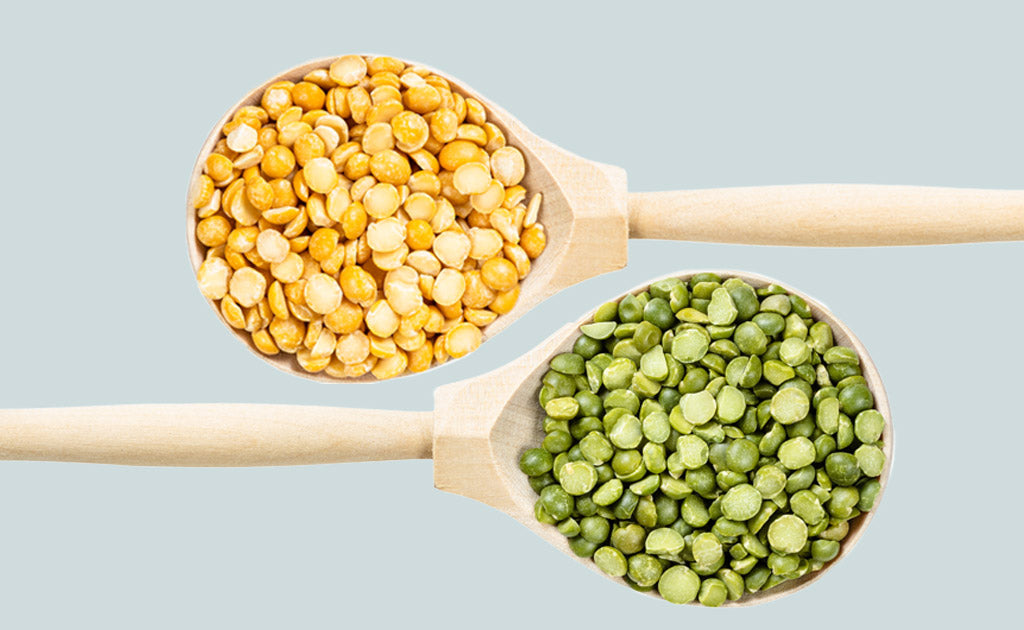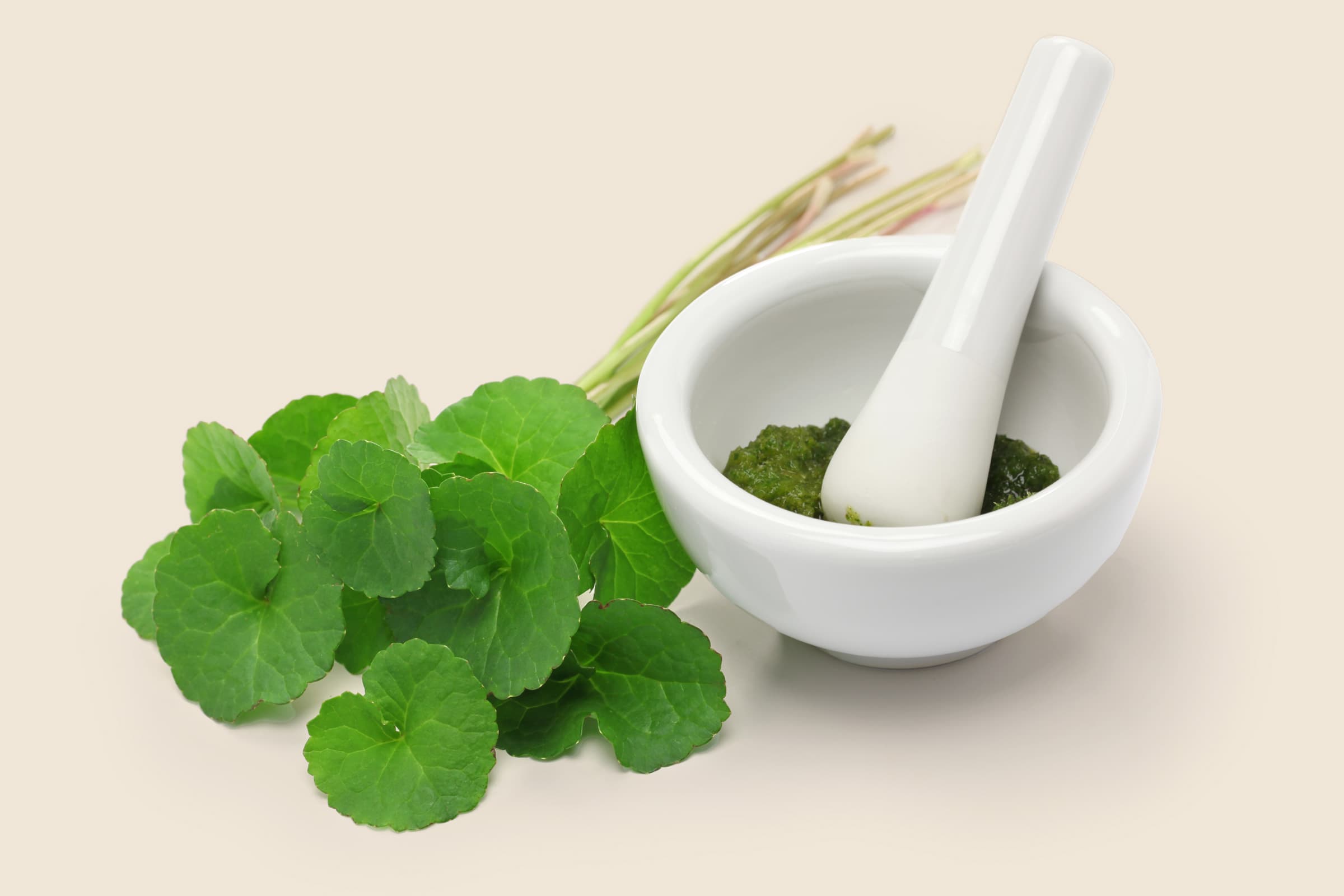Author: Megan Jones (Adv.Dip.NutMed, BHsc.NutMed)
Tired of feeling tired? Stressed about feeling stressed? Sick of feeling sick? Living in today’s world with all its challenges can be difficult at times, with many of us finding ourselves caught in a cycle that seems to perpetuate stress, exhaustion and sickness.
The good news is, there is a growing supplement trend in the wellness world - popping up on shelves of health food stores everywhere – of natural ways to counteract the negative effects of stress on the body.
Enter: ADAPTOGENS
In this article, we take a deep dive into a unique class of plants, known as “adaptogens”. We explore the way by which adaptogens are used to help our bodies manage stress and restore balance. [1] We also explore how a multi-nutrient formula like Nuzest’s Good Green Vitality can help support the way in which our body responds to stress, and how it can help us adapt more efficiently to the demands of everyday life.
Did you know? Nuzest’s Good Green Vitality contains adaptogenic plants and extracts like Ashwagandha, Panax ginseng, Astragalus, Rhodiola, Shiitake mushroom, Gotu Kola, Brahmi and Rosemary, carefully formulated to help improve our body’s stress response and maintain our natural state of balance – aka “homeostasis”.
Key takeaways:
- Adaptogens are a class of herbs with a long history of use, protecting the body against stress by reducing its reactions and restoring normal physiological functioning. [16]
- Adaptogens exhibit various health benefits, including neuro-protection, anti-fatigue, anti-depressive, and anti-anxiety effects. [17]
- Adaptogens work to balance the body's response to stress by interacting with glucocorticoid receptors. [23]
- Adaptogens, though officially coined in 1947, have been revered for centuries across different cultures. [20,21]
- Extracts like Ashwagandha, Panax ginseng, Astragalus, Rhodiola, Shiitake mushroom, Gotu Kola, Brahmi and Rosemary have been carefully selected to help improve our body’s stress response and maintain our natural state of balance – aka “homeostasis”.
INTRO TO ADAPTOGENS 101
"Health is the ability to adapt to one's environment."
–George Canguilhem, Normal and Pathological (1943)
Stress and anxiety are constantly on the rise [2], with generalized anxiety disorders affecting more than 46 million people worldwide. [3] Most of us are aware that a constant state of stress can manifest itself physically in the body. [4,5,6] What is lesser known perhaps, is that these symptoms can range from nausea to diarrhea, to muscle aches and pains, to heart palpitations, high blood pressure and even to the worsening of chronic pain or autoimmunity. [7,8] In fact, up to 90 percent of illness and disease is reported as stress-related. [9,10,11]
Whether it be through exercise, meditation, deep breathing, spending time in nature, taking a holiday, or switching to a nutrient-dense wholefood diet, combatting stress and anxiety through self-care practices is more common now than ever before. [12] However, the question remains, how many of us know about using plant adaptogens as an effective tool to add to our stress-busting toolkit? [13]
Read on as we uncover the answers to questions surrounding what they are, how they work, and what sorts of benefits they offer.
WHAT ARE ADAPTOGENS?
Adaptogens are a class of herbs – commonly consumed in supplemental form as capsules, powders, tinctures or teas - which work to protect the body against the negative effects of stress. The most ancient of modern health trends, they have a long history of use dating back thousands of years. [14,15] By reducing the body’s reaction to a stressor – whether that stressor be physical or emotional - adaptogens can (as the name suggests) help it to adapt and restore normal physiological functioning. [16]
While they are used primarily to support our stress response, these non-toxic herbs, roots and medicinal mushrooms also exhibit neuro-protective, anti-fatigue, anti-depressive, anti-anxiety, and both brain and central nervous system stimulating and tonifying effects. [17] This means that they work not only as stress support, but also to combat fatigue, improve sleep quality, mood, energy levels, mental focus and support our overall health and vitality as well. [18,19]
THE HISTORY OF ADAPTOGENS
Although the term ‘adaptogens’ was coined in 1947, the plants have in fact been revered for centuries – with nearly every culture in the world using rejuvenating and restorative plants as medicine. [20,21] In Traditional Chinese Medicine (TCM), for example, herbs with similar mechanisms to adaptogens are called “qi tonics”, while in Ayurveda, they’re known as “rasayanas.” In Daoism, restorative and balancing herbs are “tonic herbs”, while in Western herbal medicine, herbs like “nutritive tonics” and “trophorestoratives” are analogous to adaptogenic herbs.
It was Dr. Israel Brekhman - a renowned Russian scientist, researcher and medical doctor and often credited as being the “Father of Adaptogens” - who coined this term, defining adaptogens as natural plant substances containing compounds that met the following three criteria:
- They help the body adapt to nonspecific, generalized stress from a variety of sources (physical, biological or chemical) – supporting the stress response of the individual.
- They buffer the physical impact of stress, exerting a normalizing effect and helping the body maintain a state of balance – i.e. homeostasis.
- They are safe for consumption, and do not harm the normal functions of the body. [22]
Over time, however, the definition evolved. In 1998, the Food and Drug Administration defined adaptogens as: “A new kind of metabolic regulator that has been proved to help in environmental adaptation and to prevent external harms.”
HOW DO ADAPTOGENS WORK?
Adaptogens are amphoteric by nature, meaning they balance or mediate the body’s response to stress. In fact, they possess the ability to both calm and energize simultaneously, through their interaction with glucocorticoid receptors within our cells. [23] At a cellular level, elevated levels of adrenaline and cortisol (aka “stress hormones”) are inhibited or decreased, helping to restore balance within the hypothalamic, pituitary, and adrenal glands – aka the “HPA axis”. [24] This complex system of glands, hormones and receptors in the body is central not only to our stress responses and energy metabolism, but to our body’s homeostasis – allowing us reach and maintain a state of equilibrium.
The chemical constituents found within adaptogenic plants are also able to influence several other important mediators of the body’s stress response, such as:
- Neuropeptide Y
- Nitric oxide
- Stress-activated protein kinases
- Heat shock proteins (HSP70 and HSP25)
- FOXO (DAF-16) transcription factor. [25,26]
While adaptogens are used to minimise stress reactions and provide protection against the long-term effects of stress, these effects may in fact also be related to adaptogens’ influence on glucose metabolism, and the subsequent lowering of triglycerides - the most common type of fat in the blood.
Adaptogen supplementation has been shown to positively influence glucose metabolism by:
- Increasing our blood glucose level by stimulating the liver to convert glycogen to glucose
- Enhancing the entry of glucose into cells
- Enhancing the utilisation of glucose within cells. [27]
Since high blood sugar significantly contributes to a pro-inflammatory state in the body, the ability of adaptogens to modulate glucose metabolism means a subsequent reduction in systemic inflammation. Adaptogens also positively influence inflammatory mediators such as eicosanoids, prostaglandins, leukotrienes, and arachidonic acids. [28,29]
TOP 8 ADAPTOGENS - OUR PICK
Ashwagandha: While it is best known for its potential to reduce stress and anxiety levels in the body, promote a good night’s sleep, provide an increase to the body’s natural energy production, studies have indicated its adaptogenic and anti-inflammatory properties aswell. [30,31]
Panax ginseng: Various studies have explored the adaptogenic effects of Panax ginseng, indicating its potential to improve physical performance, reduce fatigue, and enhance cognitive function. Ginsenosides, the active compounds, have been associated with these effects. [32,33]
Astragalus: Research suggests that Astragalus may have immune-modulating and anti-inflammatory properties, potentially supporting immune function and overall vitality. [34]
Rhodiola: Studies highlight Rhodiola's adaptogenic and anti-fatigue effects. [35] Rhodiola may enhance mental performance, reduce fatigue, and impact stress hormones and neurotransmitters, making it a popular choice as adaptogen for those seeking to manage their stress.
Shiitake Mushroom: Various studies explore the immune-modulating and antioxidant properties of Shiitake mushroom that potentially contribute to its adaptogenic effects and support of our overall health and vitality. [36]
Rosemary: Research indicates that Rosemary contains compounds such as Rosmarinic acid, with antioxidant and anti-inflammatory properties, potentially providing neuroprotective and cognitive benefits. [37]
Brahmi: A 2013 study on stress reactivity and mood revealed the anti-anxiety, anti-depressant, calming, and adaptogenic actions Brahmi possesses - in addition to its documented cognitive-enhancing effects. [38] It is often used therapeutically to “sharpen the mind and the intellect”. [39]
Gotu Kola: Research has shown Gotu Kola to exhibit benefits to memory, the immune system, antioxidant status, anti-inflammatory effects, anti-viral activity, benefits to vascular function, and anti-depressant properties. [40,41]
When it comes to supporting our body’s stress response, look no further than a simple daily serve of Nuzest’s Good Green Vitality! Containing 75+ wholefood and plant-based ingredients like fruits, vegetables, antioxidants, pre and probiotics, vitamins, minerals, digestive enzymes and more, and with plant extracts and adaptogens like Ashwagandha, Panax ginseng, Astragalus, Rhodiola, Shiitake mushroom, Gotu Kola, Brahmi and Rosemary, it is the perfect tool to add to that stress-busting toolkit!
REFLECTING ON ADAPTOGENS
It is important to note that the research surrounding adaptogens and their potential therapeutic actions is ongoing. While there is scientific evidence from studies to support their benefits, more research is needed to fully understand their mechanisms and specific effects in different contexts.
We always recommend when starting on a new health regime to have a chat with your healthcare provider as every person and their biochemistry is unique!
REFERENCES:
[1] https://www.healthline.com/health/stress/smart-girls-guide-to-adaptogens
[2] https://mecp.springeropen.com/articles/10.1186/s43045-023-00315-3
[3] https://www.frontiersin.org/articles/10.3389/fpsyt.2023.1291083/full
[4] https://www.webmd.com/balance/stress-management/features/10-fixable-stress-related-health-problems
[5] https://www.mayoclinic.org/healthy-lifestyle/stress-management/in-depth/stress/art-20046037
[6] https://accelerate.uofuhealth.utah.edu/connect/say-goodbye-to-physical-stress-with-these-three-tips
[7] https://www.mayoclinic.org/healthy-lifestyle/stress-management/in-depth/stress-symptoms/art-20050987
[8] https://www.stanfordchildrens.org/en/topic/default?id=the-stress-pain-connection-88-p11008
[9] https://www.ncbi.nlm.nih.gov/pmc/articles/PMC5476783/
[10] https://www.ncbi.nlm.nih.gov/pmc/articles/PMC4610617/
[11] https://www.ncbi.nlm.nih.gov/pmc/articles/PMC7349817/
[12] https://www.ncbi.nlm.nih.gov/pmc/articles/PMC7035984/
[13] https://www.sciencedirect.com/topics/medicine-and-dentistry/adaptogen
[14] https://www.frontiersin.org/articles/10.3389/fphar.2022.925387/full
[15] https://www.sciencedirect.com/science/article/pii/S1756464623002955
[16] https://www.ncbi.nlm.nih.gov/pmc/articles/PMC8398443/
[17] https://www.ncbi.nlm.nih.gov/pmc/articles/PMC3991026/
[18] https://my.clevelandclinic.org/health/drugs/22361-adaptogens
[19] https://www.ncbi.nlm.nih.gov/pmc/articles/PMC8398443/
[20] https://extension.psu.edu/herb-and-spice-history
[21] https://www.thelancet.com/journals/lanplh/article/PIIS2542-5196(22)00317-5/fulltext
[22] https://my.clevelandclinic.org/health/drugs/22361-adaptogens
[23] https://www.sciencedirect.com/science/article/pii/S1756464623002955
[24] https://www.sciencedirect.com/science/article/abs/pii/B9780128139226000345
[25] https://www.sciencedirect.com/science/article/pii/S2213422020300652#bib0020
[26] https://www.researchgate.net/publication/303157578_Evidence-based_efficacy_and_effectiveness_of_Rhodiola_SHR-5_extract_in_treating_stress-and_age-associated_disorders
[27] https://www.sciencedirect.com/topics/neuroscience/adaptogen
[28] https://www.researchgate.net/publication/331643338_Effects_of_anti-inflammatory_and_adaptogenic_herbal_extracts_on_gene_expression_of_eicosanoids_signaling_pathways_in_isolated_brain_cells
[29] https://www.ncbi.nlm.nih.gov/pmc/articles/PMC3155223/
[30] https://pubmed.ncbi.nlm.nih.gov/31517876/
[31] https://pubmed.ncbi.nlm.nih.gov/34858513/
[32] https://www.ncbi.nlm.nih.gov/pmc/articles/PMC3136130/
[33] https://www.frontiersin.org/articles/10.3389/fphar.2023.1069268/full
[34] https://pubmed.ncbi.nlm.nih.gov/31034954/
[35] https://www.sciencedirect.com/science/article/abs/pii/S094471131000036X
[36] https://www.sciencedirect.com/science/article/abs/pii/S0278691508002184?via%3Dihub
[37] https://www.researchgate.net/publication/319049718_ANTIMICROBIAL_AND_ANTIOXIDANT_PROPERTIES_OF_THYME_Thymus_vulgaris_L_ROSEMARY_Rosmarinus_officinalis_L_AND_LAUREL_Lauris_nobilis_L_ESSENTIAL_OILS_AND_THEIR_MIXTURES
[38] https://onlinelibrary.wiley.com/doi/full/10.1002/ptr.5029
[39] https://www.ncbi.nlm.nih.gov/pmc/articles/PMC5269610/
[40] https://pubmed.ncbi.nlm.nih.gov/31998466/
[41] https://www.ncbi.nlm.nih.gov/pmc/articles/PMC3359802/
